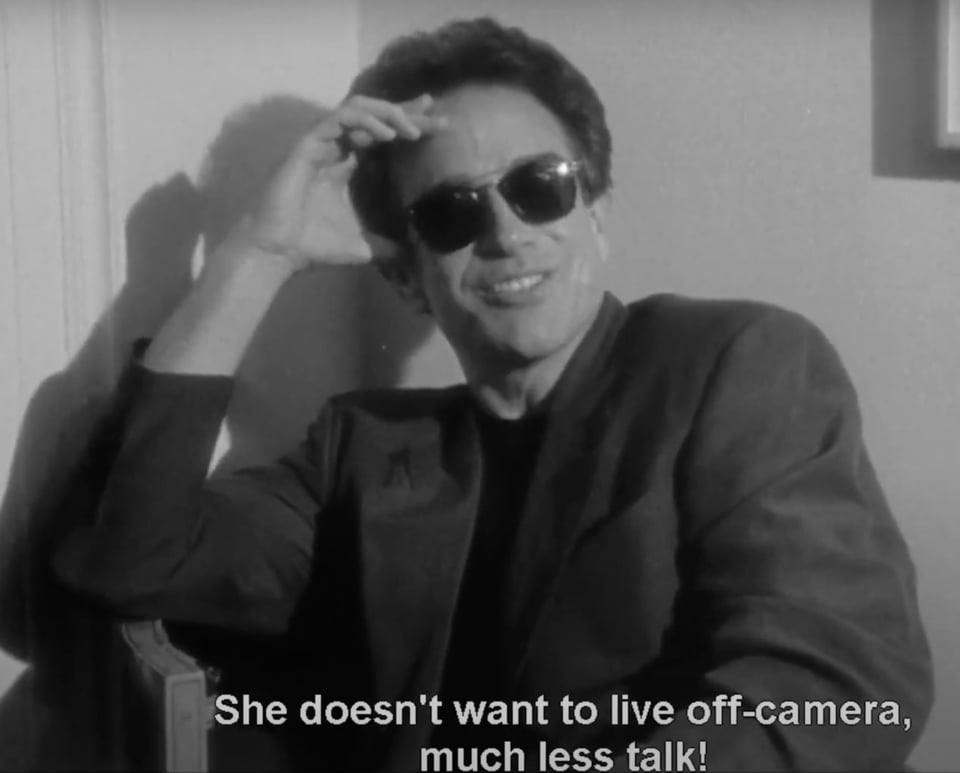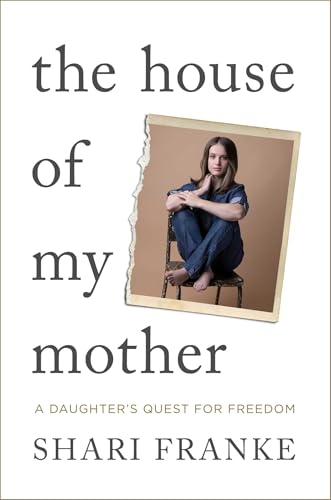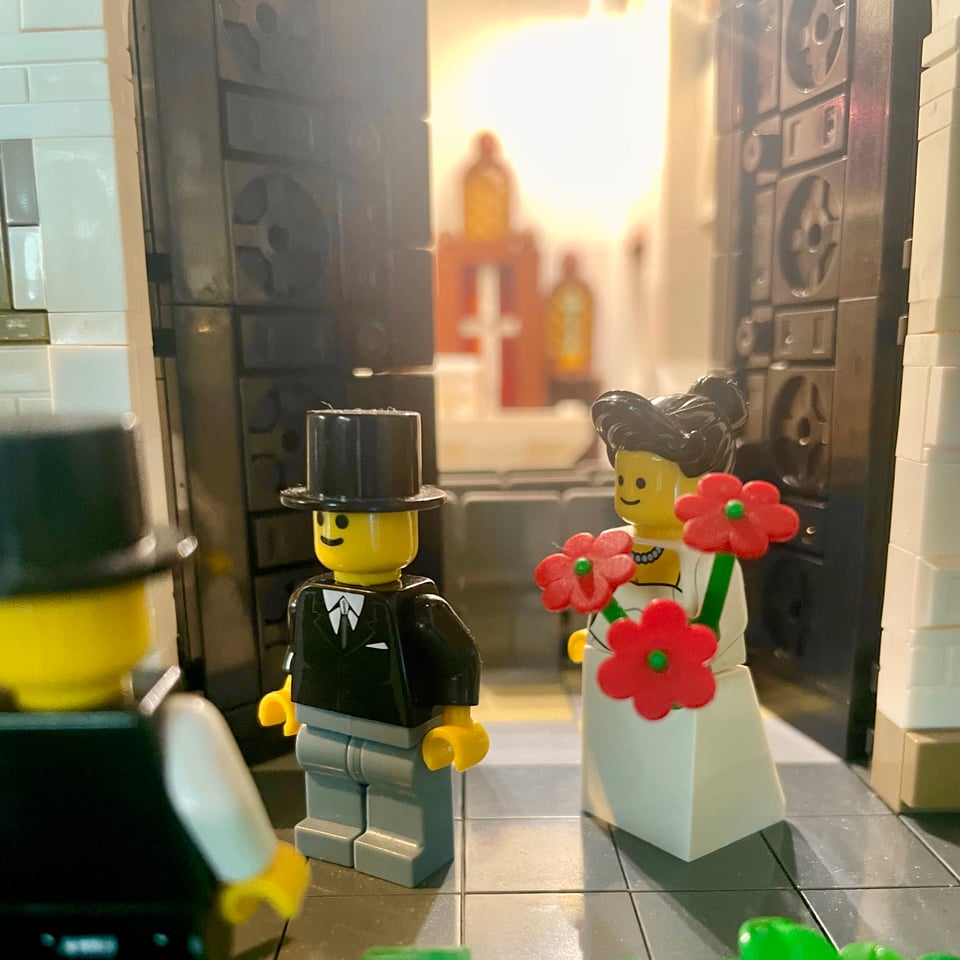In my favourite movie, Truth or Dare (In Bed with Madonna) there’s a scene in which Madonna is being treated by a doctor for her throat while on tour, and her then-boyfriend Warren Beatty is in the background. He can’t understand why she wants to do this, talking to her doctor about a serious medical issue, on camera. “Does no-one talk about this?” he asks. “The insanity of doing all this on a documentary?”
Madonna’s response: “Why should I stop here?”

I’ve been thinking about that scene this week in the context of a bunch of disconnected but deeply related stories about family vloggers. Tread carefully with this one, it’s a minefield of content warnings about child abuse.
In quick succession, I read the novel Such a Bad Influence by Olivia Muenter (about the disappearance of vlogger who’d become famous as a child), listened to Shari Franke’s audiobook The House of My Mother (about her life growing up on the 8 Passengers YouTube channel, and the subsequent tragedy of abuse and coercive control), watched the new HBO documentary An Update On Our Family (based on the New York magazine article about the Stauffers, who vlogged relentlessly about the child they adopted from China and then rehomed him when his special needs became too much for them) and watched a tiktok influencer in Australia get arrested for poisoning her child after making content and soliciting donations based on the child’s “illness”.

There’s SO much to get into here. I’ve long been fascinated by several things that intersect in these stories. How people longing for community and validation often find it in high-demand groups and cults. How the Mormon church’s insistence on rigid gender roles has lead to women “working from home” in some really damaging ways (see also: MLMs).
But what’s fascinated me in this latest wave is the fandom aspect. The parasocial relationship that the people who watch family vlogs have with these influencers, and the demands that creates within these families. The truly extraordinary economics of very young children essentially becoming the breadwinners within their families, entirely without their consent.
In the Stauffer documentary, one longtime follower of their channel describes watching family vloggers as being akin to watching reality tv, to feeling like you’re invited into the creators’ homes and part of their lives — even as it seems obvious that what we’re shown by these vloggers is about as “real” as watching the Kardashians. And she talked about how viewers of the channel formed their own community in the comments, talking with one another. A fandom, in other words.
As fans, I think we’re already reckoning with the impact of child stardom, and how negative it can be. We’re also watching the first generation of kids who have grown up on social media starting to come forward and say that they didn’t want to be online, but that they never had a choice. And when YouTube income and brand deals are paying for you and your family to have a nice house, and car, and vacations, how on earth could you ever complain?
Part of the answer is obviously to regulate — to prevent children “starring” in social media content at all, or at least with some protections. But as fans, it’s so important to listen to these first-hand accounts and think about what it is we’re consuming.
In fandom circles we often talk about the “ethics” of some fan content — paparazzi photos being an obvious one, creep shots of celebrities another. Family vlogging seems so cut and dried to me. I’d love to hear from you if you feel differently.
[If you’ve been following the Franke case, the Mormon Stories podcast has a great (phenomenally long) episode discussing Shari’s book.]
more good stuff
I really enjoyed Rainbow Rowell’s 2013 coming of age novel Fangirl, but one of my absolute favourite things about it was that Rowell went on to write the Carry On series, centred on the before-then-imaginary characters that Cath wrote fanfiction about in the first book. So, you’ll understand why I got such a kick out of this article Elizabeth wrote about a collection of “imaginary books” on display in New York.
I loved this story from Eunice Braga about the fans of Philippine pop group BINI (called Blooms) forming their own running club:
I am fascinated by our ability to take the seed that fandom plants in us and to cultivate something out of it. I am fascinated by what we can create when it comes from love.
I also absolutely love to see fans once again breaking a snitch line. In this case uploading the script of The Bee Movie, Walter White’s monologue from Breaking Bad, and the “raunchiest fanfic from AO3” to Missouri’s Attorney General’s site inviting “concerns” about gender affirming care in the state. (What exactly is the raunchiest fanfic on AO3? and do you use an incognito window to read it?)
finally, in my lego city

You just read issue #5 of what you love matters. You can also browse the full archives of this newsletter.
-
Interestingly we have been consuming similar media in a way. I watched “Sister Wives” for the first couple of years in an on and off way, and then through Reddit (honestly) I randomly came across it again and found out two of the wives had left. Then another. So I started from the beginning again, to see if I could see it coming (spoiler alert: the only shocking thing is that they stayed together so long).
You see the older kids start to disappear as they turn 18 and become able to say yes or no to filming. And that makes me pretty happy for them. I probably had waay too long of a discussion with my youngest sister about the show tonight, and how they ended up where they did, and she was shocked to realize that Robyn’s kid are actually as old as they are - she thought they were all minors still.
Anyway, with what happened with the Duggars, it really soured me to non-competition reality shows. Kids should get a say. Their lives are being shared! I mean, TLC is really a boon to all of this - Jon & Kate Plus 8 as well - and I think the pressure to have story lines and justify another season is always there.
Mormonism comes into play with the Browns as well - interestingly, only Kody and Janelle didn’t grow up in Mormon fundamentalism, but they were still LDS. It’s a religion that ties your spiritual eternity to a single man’s, and I think that becomes a struggle for true believers to leave, not to mention the patriarchal dominance. (It’s interesting to think about how The Secret Lives of Mormon Wives fits in to this - TikTok became their vlog, and when one’s behavior stopped “fitting MomTok” the whole show started).
I love that Rainbow Rowell is kind of writing fanfic about her own books, except . . . The books are sort of canon actually? Fascinating meta twist.
All to say: I remember when there was a HUGE fan-ish divide between the people that wrote fanfic and those that wrote RPG. The Kardashians didn’t even exist yet! It seems so strange to think how cautious people were thinking that these people really existed and what would happen if they stumbled across themselves in a story - and now people are putting whole “stories” of them and their families online.

Add a comment: